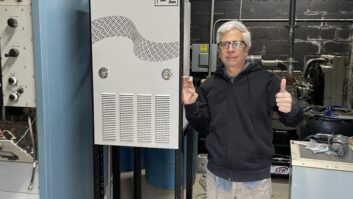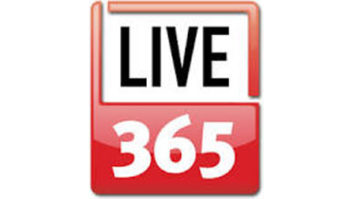Broadcasters who despair of connecting with millennials — now defined as Americans born between 1982 and 2004 — should sit down and listen to Megan Tan’s popular and highly regarded “Millennial Podcast.”

Produced since 2014 by Tan in Portland, Maine — she moved there after graduating from Western Kentucky University with a photojournalism degree but no clear plans — “Millennial” has become an influential hit with that generation. This includes achieving up to 300,000 listens a month through major streaming sites such as iTunes, Soundcloud, Stitcher and Tunein.
In 2016, the podcast was selected for distribution by PRX’s Radiotopia, a curated podcast marketplace that offers Tan and other independent audio producers ways to earn money from their content. She has sponsors through Radiotopia — including FreshBooks accounting software, Squarespace web design and Blue Apron meal kits — whose pitches she works into her content in a seamless, personal way typical of the medium.
This podcast that began as a project for Tan’s friends and quickly spread by 20-something word of mouth has been winning praise and exposure in the mainstream media.
“‘Millennial’ is a consistently engaging podcast,” The Guardian’s Priya Elan wrote two years ago; Elan reviewed and helped to popularize the program. “Tan’s audio autobiography feels like an authentic study of the twenty-something condition in 2015; caught between an economic landslide and an uncemented sense of self, millennials, we are told, are defined by their contradictions.” The Atlantic signaled its approval by ranking “Millennial” 15th in its 50 best podcasts of that year.

“COMING OF AGE”
How does Megan Tan get so much attention for a show whose narration she records in her closet? The explanation is at www.millennialpodcast.org: “Millennial is a podcast about coming of age.” Its original mission: “Millennial is a podcast about what people never teach you — how to maneuver your 20s” but an updated summary reflects Tan’s aim to make the podcast more universal, she explained in an email. (The oldest millennials are now 35.)
In this vein, Tan’s 32 podcasts to date cover topics such as making the right life decisions (“How do you know which ones will lead you to become the person you want to be in the future? And which ones may screw everything up?”); marriage (“After four years of being in a relationship, my boyfriend and I have never talked about marriage. But after sitting down with my family, all of that changes”) and what she calls “Have and have mores” (“How do you come to terms with your own financial status when your peers are living lives you can’t afford?”). In her third season, Tan traveled to Cuba — a departure from her previous autobiographical work.
“I wanted to produce the kind of audio content that I love consuming,” Tan told Radio World. “I love audio stories that are really well told, and that is what I have been trying to do with the ‘Millennial.’ I chose this theme not just because of my own stage in life — I relate to life as millennial — but also because there is so little out there to help 20-somethings make their way through growing up.”
Collectively, Tan’s roster of topics deliver what she promises: to assist her listeners in figuring out how to direct their own lives, by sharing how she and people around her are dealing with theirs. The results are resonating with Tan’s growing audience and media outlets who have noticed what she is up to.
DEFT PRODUCTION
Tan recorded the voice track of her first two seasons in a closet. “I was in there with a microphone, my laptop with my script on it and a Tascam audio recorder,” she said. “The closet made sense acoustically to me, because of all the sound-dampening padding.”
Listening to Millennial’s first podcast, you can hear the effect of “closet dampening” in the opening words: “Growing up, I loved school. Even now, when I walk into an office supply store, I get a rush of adrenalin. The smell of new book bags just trigger these anxious and excited feelings that remind me of getting excited about my first day of school.”
That said, it doesn’t take long for Tan’s deft, NPR-quality production skills to come to the fore: When she mentions her mother laughing at her daughter’s love for school, you hear her mother’s laughter rising up in the background, followed by a seamless audio clip from Tan’s mother that takes the narrative further; followed by yet more mixes of narration, sound effects, on-site audio and music that makes sense in context.
This is the genius of the podcast, from a production and content standpoint: Tan may be putting this podcast together at home but her production skills and sense of the mix match the best audio produced by NPR, the BBC and Canada’s CBC Radio. In this way, Tan connects with millennials’ desire not only for content that is relevant to them but also for a polished level of production and presentation that they are accustomed to.
LESSON FOR BROADCASTERS
These elements — listener-relevant content from a host/producer, aided by professional quality mixing and excellent story-telling by a person with solid presentation skills — have helped drive the podcast from being an idiosyncratic personal project to a popular podcast.
But what also keeps “Millennial” successful is Tan’s evident refusal to let popularity go to her head. Thirty-two episodes on, she’s still producing it at home, “rather than going corporate in some big impersonal studio,” she said. This includes Tan voicing her narration in the closet, even though she is now earning enough money to make the podcast her full-time career.
“I like living where I am, telling the stories that matter to me and my listeners, and keeping complete editorial control over the ‘Millennial’ podcast,” Tan said. “Hopefully 20 years from now, I’ll still be telling compelling audio stories about dealing with life’s challenges and people will be listening — because we never really stop growing up.”
This dedication to authentic audio story-telling is at the heart of the podcast’s success. It remains as clear in episode #29, titled “You Can’t Go Home Anymore,” which asks, “The plan is to grow up and chase after your dreams, but what if getting closer to your goals means moving farther from your family?” — as it did in the premiere podcast.
Tan proves that young listeners will flock to high-quality, well-produced audio programming if it actually speaks sincerely to them. Broadcasters who assume that millennial listeners are a lost cause take note; if you provide honest content that resonates with them, they will come.












